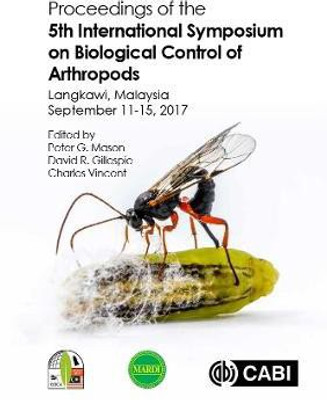Proceedings of the 5th International Symposium on Biological Control of Arthropods(English, Electronic book text, unknown)
Quick Overview
Product Price Comparison
The 5th International Symposium on Biological Control of Arthropods, held in Langkawi, Malaysia, continues the series of international symposia on the biological control of arthropods organized every four years. The first meeting was in Honolulu, Hawaii, USA in January 2002, followed by the Davos, Switzerland meeting in September 2005, the Christchurch, New Zealand meeting in February 2009, and the Pucon, Chile meeting in March 2013. The goal of these symposia is to create a forum where biological control researchers and practitioners can meet and exchange information, to promote discussions of up-to-date issues affecting biological control, particularly pertaining the use of parasitoids and predators as biological control agents. This includes all approaches to biological control: conservation, augmentation, and importation of natural enemy species for the control of arthropod targets, as well as other transversal issues related to its implementation. Topics covered include: - non-target impacts in biological control as the cornerstone of successful integrated pest management programmes; - regulation and risk assessment methodology; - implementing access and benefit sharing policies; - assessing the impact of biological control programmes for both cost-benefit analyses and determining the socio-economic impact and effect on livelihoods; - understanding the uptake of biological control solutions in low and lower middle income countries to replace the use of highly hazardous pesticides; - the role of native and exotic natural enemies; and - the importance of pre- and post-genetics in biological control.


